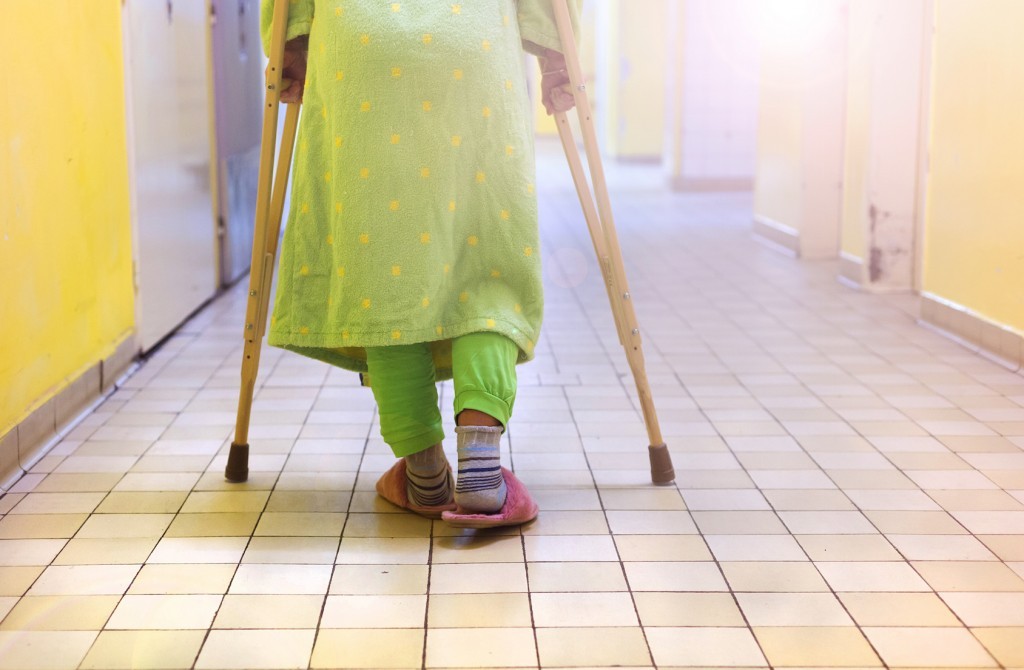The work pressure at any hospital is so great that doctors and nurses go without adequate sleep or food. They have little time with a patient before the pager beeps, calling them somewhere else. When working with such distractions and stresses, oversights occur much too easily. The complexity of modern medicine and the constant handoffs among physicians in a hospital increase the possibility for errors.
Here are two examples of common oversights:
- Hospital-acquired pneumonia often can be prevented by setting the head of the patient’s bed at a 30° angle, but doctors tend to forget to order it.
- While doctors and nurses should disinfect with both alcohol wipes and bleach wipes, they seldom have the time.
Because doctors and nurses are so busy, the patient’s family needs to educate themselves and alert doctors and nurses when oversights occur. Books such as Safe and Sound In The Hospital (by Karen Curtiss) offer checklists that people with loved ones in a hospital should use. Alarmingly, there are enough areas of potential oversight to fill an entire book.
Here are a few examples:
Blood clots
When a patient is confined to a hospital bed, blood clots and embolisms can form in the blood vessels. If doctors or nurses had time, they would ask patients to take frequent walks or, if walks are not possible, to wear pulsating stockings and armbands. Both methods help blood circulation. When healthcare providers don’t have the time to pay attention to this problem, you need to bring it up.
Falls in hospitals
Confusion about their surroundings and even medications that cause dizziness can cause patients to fall out of their beds or chairs. Patients can also trip and fall while walking, and the fact that there are wires and tubes all around adds to the risk.
To help prevent falls, you can ask for a fall alarm for both the patient’s chair and the bed, and ask for non-skid socks or shoes.
Bedsores
Constant pressure or friction on a bony part of the body, the buttocks for example, leads to poor circulation. With poor blood flow comes the danger of tissue death, or bedsores. Many bedsores are not open wounds but are internal. These wounds are annoying but they also can be deadly. Bedsores kill 60,000 elderly patients each year.
Here are some ways to help prevent bedsores:
- Ask for an alternating air pressure mattress to deliver constantly changing pressure to the body.
- Ask the nurse for a barrier cream to lubricate parts of the skin that receive pressure.
- Ask the doctor to prescribe a high-protein diet to minimize the chance of developing bedsores.
Medication errors
Doctors and nurses frequently get medicines mixed up. This happens because of similar-sounding names, similar-looking labels, and even similar-looking pills. Whatever medications the patient gets, you should check the website of the Institute for Safe Medication Practices for any common mistakes. If you see any, bring it to the attention of both doctors and nurses.
Surgery-related errors
The number one surgery-related error is that the surgery never should have been performed. Before you authorize a surgery for a family member, you should get at least two other opinions to see if alternative diagnoses or treatments are possible. You also should record all your meetings with doctors so that you can listen to everything again at home.
If surgery is necessary and you have a choice as to when it should be scheduled, you should avoid having surgery on a busy day or in a busy season. Avoid Tuesdays, Wednesdays and Thursdays and the months of July and August. Holiday weeks should be avoided as well, if possible. If the surgery is elective, consider using the Surgeon Scorecard tool, put together by ProPublica. This tool will allow you to check on the complication rates of the hospital and/or surgeon likely to perform your surgery.
Don’t ever feel embarrassed about bringing these problems up
A study found that doctors get offended when patients point out that they haven’t washed their hands.
This example shows you that doctors also make simple, human mistakes. You owe it to your loved ones in the hospital to treat doctors the same way you would treat any person who makes mistakes. You need to bring everything up. If you’re too embarrassed, carry the checklist book, mentioned above, with you. It may be easier to point to an expert book than to bring up the problem yourself.
